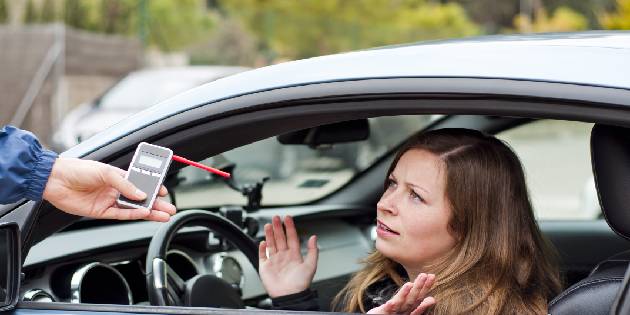
Breath tests to determine the alcohol content in a person’s blood system have been used since shortly after automobiles became available in the early 20th century. They have been relied on for decades to secure convictions in drunken driving cases, but results are now being called into question for their accuracy.
An investigative report in the New York Times claims many of those convictions are made using inaccurate and unreliable breath test results. Some judges are even beginning to question alcohol breath tests and are thousands of drunken driving convictions are being thrown out of court.
Alcohol breath testing devices are sensitive instruments that need to be properly calibrated by an experienced technician. Regardless of the brand or the state in which it was being used, the Times found tests being poorly maintained or improperly set up and alcohol breath tests were producing inaccurate results that were falsely identifying drunken driving violations. Some cities that use “home-brewed chemical solutions” or have safeguard features disabled can show even more inaccuracies.
The in-depth investigation included more than 100 interviews and a careful review of tens of thousands of related documents. The Times revealed widespread problems across the country that has received minimal attention.
The most consequential part of being suspected of drunken driving is blowing into the “miniature science lab” administered at the scene or at the police station following your arrest. If the device shows an alcohol content level over the legal limit a conviction will soon follow.
The threshold for drunken driving in most states is 0.08 grams of alcohol per 100 millimeters of blood. The only completely effective way of determining the blood alcohol content is to draw blood from the person, which legally requires acquiring a warrant. Breath tests are an easier, if unreliable, alternative. Breath testing device contracts with police crime labs can be worth up to millions of dollars.
After a Pennsylvania judge questioned his state’s alcohol breath test results, prosecutors stopped using the tests in their cases. A Florida panel of judges said their state’s results showed “significant and continued anomalies.”
A 2007 analysis of the breath test device software revealed “thousands of programming errors,” according to a court report. The problem lies in the wide range of machine types and standards applied to these devices from state to state, community to community, which continue to rely on faulty or inaccurate results to convict drivers of drunken driving based on unreliable information.
Despite the widespread reporting and ongoing inaccuracies throughout the country, drivers in all states are still being punished for refusing to take an alcohol breath test when ordered by an officer of the law.
The legal system still relies heavily on the results from these testing devices and procedures, meaning drivers are being wrongfully convicted of drunken driving based on unreliable test results. In turn, cases with flawed results are being dismissed, with possible drunk drivers let go without consequences to do it again.
Ticket Void is a web service that can help you find an experienced lawyer for Driving Under the Influence (DUI), Driving While Intoxicated (DWI), speeding tickets, careless driving, license plate violations, and other serious traffic violations. Ticket Void expedites your legal search for experienced and reliable DUI and traffic ticket lawyers.
All Right Reserved to Copyright © 2010 – 2025
| Cookie | Duration | Description |
|---|---|---|
| cookielawinfo-checkbox-analytics | 11 months | This cookie is set by GDPR Cookie Consent plugin. The cookie is used to store the user consent for the cookies in the category "Analytics". |
| cookielawinfo-checkbox-functional | 11 months | The cookie is set by GDPR cookie consent to record the user consent for the cookies in the category "Functional". |
| cookielawinfo-checkbox-necessary | 11 months | This cookie is set by GDPR Cookie Consent plugin. The cookies is used to store the user consent for the cookies in the category "Necessary". |
| cookielawinfo-checkbox-others | 11 months | This cookie is set by GDPR Cookie Consent plugin. The cookie is used to store the user consent for the cookies in the category "Other. |
| cookielawinfo-checkbox-performance | 11 months | This cookie is set by GDPR Cookie Consent plugin. The cookie is used to store the user consent for the cookies in the category "Performance". |
| viewed_cookie_policy | 11 months | The cookie is set by the GDPR Cookie Consent plugin and is used to store whether or not user has consented to the use of cookies. It does not store any personal data. |